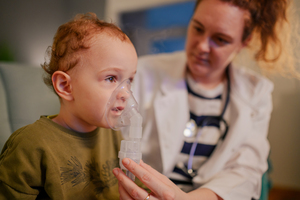Key points
- Allergy symptoms can be managed effectively by understanding the different types of allergy medicines available.
- The best allergy medicine varies for each individual, depending on the type of allergy and specific symptoms.
- Consulting with a healthcare professional is crucial when choosing allergy medication, especially for pregnant women, breastfeeding mothers, individuals with chronic health conditions, and those taking other medications.
- Emergency epinephrine shots can be lifesaving for severe, life-threatening allergic reactions.
- The article ends by stressing the importance of seeking immediate medical help in the event of a severe allergic reaction.

If you suffer from allergies, you know how important it is to find the best allergy medicine for your specific needs. With various types of allergies such as seasonal, pet dander, food, and more, there are several different kinds of allergy medicine to choose from. In this article, we will explore the options and help you determine the best allergy medicine for you.
Whether you're looking for relief from sneezing, itching, congestion, or other symptoms, understanding the different types of allergy medicine can make a significant difference in managing your allergies effectively.
Do I have Allergies or a Cold?
Allergies and colds share some similarities in their symptoms, which can make it challenging to distinguish between the two. Both conditions can cause nasal congestion, runny nose, sneezing, and a sore throat. Additionally, individuals with allergies and those with colds may experience fatigue and a general feeling of malaise. Furthermore, both allergies and colds can lead to watery eyes and coughing. However, it's important to note that allergies are typically triggered by exposure to specific allergens, while colds are caused by viral infections. Despite these similarities, the underlying causes of allergies and colds are distinct, and their treatment approaches differ accordingly.
What Are the Best Allergy Medicines to Take?
When it comes to finding the best allergy medicine, there is no one-size-fits-all solution. Allergies come in various forms, and different medications target specific symptoms. Here are some of the most common allergy medicines and how to use them effectively:
-
Oral Antihistamines: These medications help alleviate symptoms like sneezing, itching, and runny nose by blocking histamine, a chemical released during an allergic reaction. According to the Mayo Clinic, popular brands include Claritin (loratadine), Zyrtec (cetirizine), and Allegra (fexofenadine). They are best taken before allergy symptoms start, notes GoodRx.
-
Nasal Corticosteroids: These nasal steroid sprays, like Flonase (fluticasone) and [Nasonex (mometasone), are highly effective in reducing inflammation and relieving nasal congestion, sneezing, and runny nose caused by allergies, according to GoodRx.
-
Decongestants: The Mayo Clinic notes that medications like Sudafed (pseudoephedrine) and Afrin (oxymetazoline) can temporarily relieve nasal and sinus congestion by constricting blood vessels. These medications may be particularly helpful for environmental allergies, like Hay fever.
-
Mast Cell Stabilizers: Drugs like Intal (cromolyn sodium) and NasalCrom (cromolyn sodium) are antihistamines — essentially they can prevent the release of histamine and other chemicals that cause allergy symptoms, according to the Mayo Clinic.
-
Corticosteroids: For severe allergy symptoms, oral corticosteroids like prednisone can provide relief by reducing inflammation, according to the Mayo Clinic. However, they should be used with caution due to potential side effects. Corticosteroids are available as a pillow or nasal spray for allergies.
-
Leukotriene Inhibitors: These medications, such as Singulair (montelukast) can block the action of leukotrienes, which are chemicals involved in allergic reactions, according to the Mayo Clinic.
-
Allergen Immunotherapy: This is also known as allergy shots or sublingual (under-the-tongue) therapy, this treatment can desensitize the immune system to specific allergens over time, providing long-term relief, according to the Mayo Clinic.
-
Emergency Epinephrine Shots: For severe, life-threatening allergic reactions (anaphylaxis), epinephrine auto-injectors like EpiPen can be lifesaving by quickly reversing the symptoms, according to the Mayo Clinic.
Some allergy medications come in the form of eye drops, which can help with eye irritation. Allergy-related eye irritation may cause red, itchy, or swollen eyes. If allergy medication doesn’t work, you may have pink eye, according to the Mayo Clinic.
Get Your Doctor’s Advice
When it comes to selecting the right allergy medication, it's important to consider your symptoms and consult with a healthcare professional. While some over-the-counter allergy medications may seem harmless, certain situations warrant a doctor's recommendation to ensure your safety and optimal treatment. Here are some circumstances where seeking medical advice is highly recommended before choosing any allergy medication, according to the Mayo Clinic:
-
Pregnancy or Breastfeeding: Many allergy medications can cross the placenta or enter breast milk, potentially affecting the developing fetus or nursing infant. Your doctor can recommend safe options during this delicate time.
-
Chronic Health Conditions: If you have pre-existing medical conditions like high blood pressure, heart disease, thyroid disorders, or liver or kidney problems, certain allergy medications may not be suitable or may require dosage adjustments.
-
Taking Other Medications: Allergy medications can interact with other prescription drugs, over-the-counter medications, or supplements you're taking, potentially causing adverse effects or reducing their effectiveness.
-
Allergies in Children: Children's bodies metabolize medications differently than adults, and some antihistamines and other allergy drugs may not be appropriate or may require different dosages. Consult a pediatrician for the safest and most effective options.
-
Allergies in Older Adults: As we age, our bodies process antihistamines and other medications differently. Certain allergy medications may have increased side effects or interactions with other medications commonly taken by older adults.
By consulting with a healthcare professional, you can discuss your specific allergy symptoms, medical history, and current medications to receive personalized guidance on the most suitable and safe allergy medication for your needs.
For a medical emergency, like symptoms of a severe allergy, dial 911 or visit your closest emergency room immediately.
FAQs
What are some common types of allergy medicines?
Some common types include oral antihistamines, nasal corticosteroids, decongestants, mast cell stabilizers, corticosteroids, leukotriene inhibitors, allergen immunotherapy, and emergency epinephrine shots.
How can I choose the best allergy medicine for my needs?
It's important to consider your specific allergy type and symptoms. Consulting with a healthcare professional can provide personalized guidance on the most suitable and safe allergy medication for your needs.
Can allergies and colds be confused due to similar symptoms?
Yes, allergies and colds share some similarities in their symptoms, such as nasal congestion, runny nose, and sneezing, making it challenging to distinguish between the two.
Are there any situations where I should consult a doctor before choosing an allergy medication?
Yes, if you are pregnant, breastfeeding, have chronic health conditions, taking other medications, or if the patient is a child or an older adult, it's recommended to seek medical advice before choosing any allergy medication.
What should I do in case of a severe, life-threatening allergic reaction?
In case of a severe allergic reaction, use an emergency epinephrine shot if available and immediately dial 911 or visit the closest emergency room.









